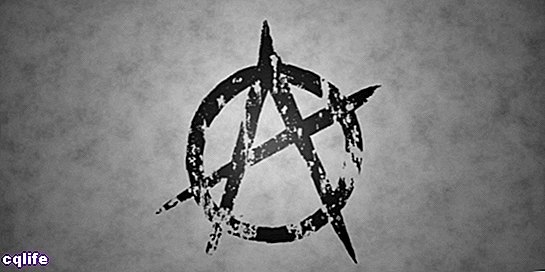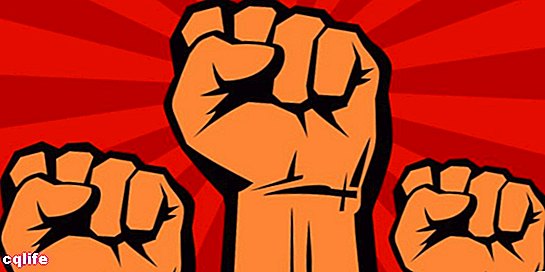- What is Anarchism?
- Origin of anarchism
- Characteristics of anarchism
- Differences between Marxism and anarchism
We explain what anarchism is and how this political movement originated. In addition, its characteristics and differences with Marxism.

What is Anarchism?
When it speaks of anarchism it refers to a political, philosophical and social movement that has asobjective principally the abolition of the State and of all forms of government, like all forms of authority, social hierarchy or control that the society intends to impose on individuals.
Anarchism considers these forms of domination as something artificial, harmful and, furthermore, unnecessary, since Humans they have a natural tendency to a just and equitable order, which has been perverted through social pacts.
In this way, anarchism is interested above all in the affairs of the individual and the society that surrounds him, with the aspiration of promoting the breakdown of the established order and allowing a social change to emerge, which ideally would lead to a society without masters, without owners, without domains of any kind.
Traditionally, various political and social movements have been grouped under the banner of anarchism, of different tendencies from each other and especially with procedures or methodologies different
There are thus more radical, violent anarchists, who aspire to an active role in the fall of the Condition; and others more calm, closer to passive resistance and pacifism. But there is no explicit and unique definition of what an anarchist is or what he has to do.
Origin of anarchism
The word anarchism as such comes from the Greek, and is made up of the wordsan- ("without") andarche ("Power or mandate"), and arose to name the stages of power vacuum that arose after the French Revolution and the fall of the monarchy at the end of the 18th century. It was a derogatory term, to call the supporters of disorder and revolutionary terror (both Robespierre and theEnragés they were called anarchists).
Now, the first contemporary anarchist movements were children of the labor movement of the early nineteenth century, whose struggle sought to improve the working conditions of the proletariat, which were particularly fierce at the beginning of thecapitalism industrial.
Libertarian Communism and the Callsocialism Utopian, and if you like more radical slopes of unionism, they played a fundamental role in the creation of anarchism, especially when a revolutionary but authoritarian left emerged, which proposed a strong and unique state.
Anarchists, enemies of all kinds of authority and oppression, would frown upon the call dictatorship of the proletariat and would emancipate themselves to create their own militancies and political and social slopes.
Characteristics of anarchism

Most anarchists are based on three great political and social pillars, which are:
- The libertarian thought. Anarchism is contrary to all forms of domination and authority, so it is opposed to the State, to the authorities, to power in its many forms, preferring a society that regulates itself naturally and spontaneously.
- The abolition of inequities. Equality is another anarchist role, so hierarchies, private property and other forms of possession are also unacceptable to him.
- The solidarity between theHumans. Brotherhood between human beings is another ideal aspect of anarchism, since the absence of laws, authorities and hierarchies would allow free interaction between people, which, according to them, would lead to solidarity, cooperation and mutualism.
Differences between Marxism and anarchism
The main difference between Marxism (also called scientific communism) and anarchist currents has to do with the fact that the former proposes a society governed by a single social class: the proletariat, in what was called the "dictatorship of the proletariat", a step prior to the communism, that is to say, the society without social classes, of absolute equality. Marxism starts from the idea of a strong State, of a single and central authority, which controls the economy and the culture with an iron fist.
Anarchists, on the other hand, see in the State their greatest enemy and prefer not to agree with the idea of a dictatorshipregardless of the prevailing social class, since its thought grassroots is libertarian.
Thus, anarchism shares with Marxism its critique of the system, its opposition to class society and the domination and exploitation of the working class, but not its proposal for an all-powerful state.
